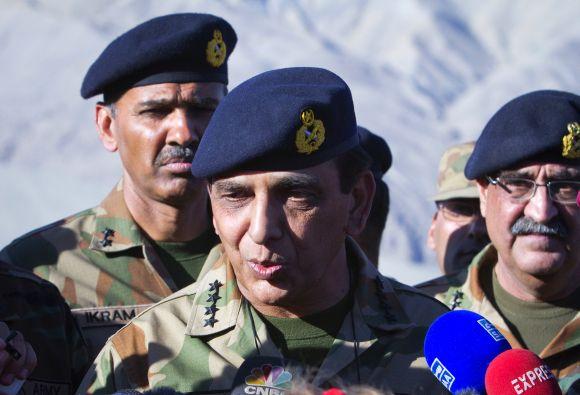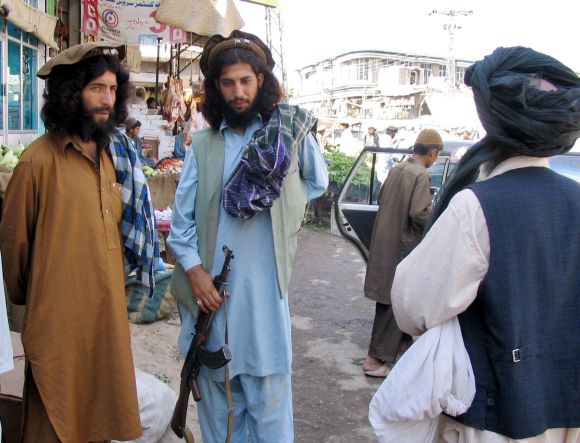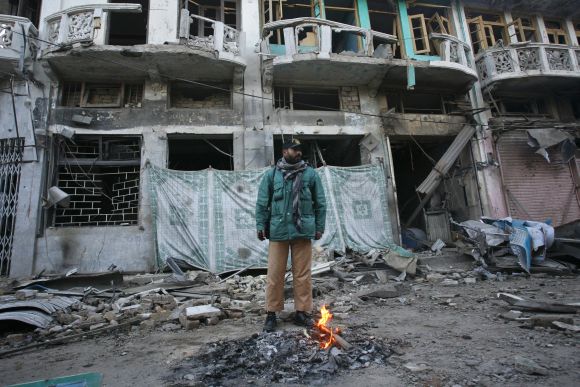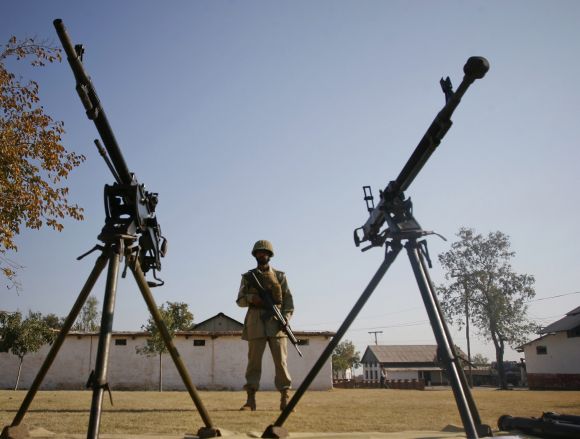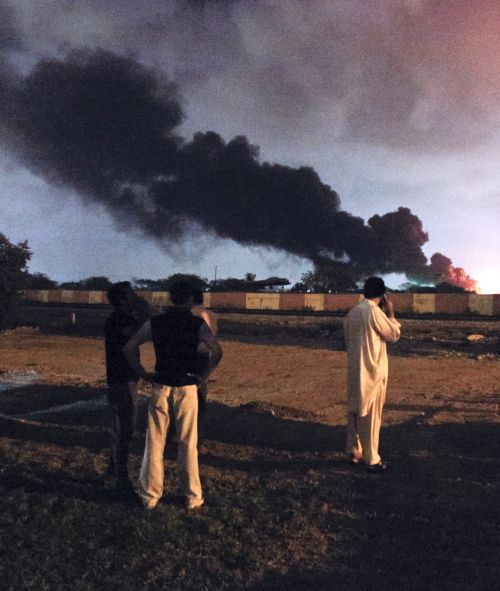 | « Back to article | Print this article |
Gen Kayani's dilemma over North Waziristan operation
Will Gen Kayani's increasingly conservative soldiers fight the Waziri militants, who have long been lauded as a sword arm of Pakistan, asks Ajai Shukla.
A reluctant Pakistani army is poised to crack down in the North Waziristan agency, the most jihad-poisoned corner of the Federally Administered Tribal Areas on Pakistan's northwestern frontier.
The army's chief, General Ashfaq Parvez Kayani, will be thanking the Tehrik-e-Taliban Pakistan, the so-called Pakistani Taliban, which -- with its ill-judged fidayeen attack last week on the Pakistani air force's vital Kamra base -- has given General Kayani a pretext to move into North Waziristan in "the national interest" rather than in submission to Washington's arm-twisting, which has now become irresistible.
But there remain serious concerns about further two-timing by Rawalpindi. The United States wants the crackdown to focus on the Haqqani faction, which fights US forces in Afghanistan from its bases around the town of Miranshah.
But will General Kayani confront the Haqqanis, his most valuable proxies in Afghanistan? Or will the Pakistani army merely feint against Miranshah, while reserving its firepower for Mir Ali, the nearby town that is headquarters for the TTP?
Click NEXT to read further...
The game Pakistani army will play
General Kayani's likely foray into North Waziristan will impact directly on the security situation in Afghanistan, and thence on Indian interests.
We must understand, therefore, the game that the Pakistani army will play. Decoding the intentions of that opaque institution is seldom easy, but General Headquarters in Rawalpindi has done us a favour by briefing a columnist, the well-respected Cyril Almeida, whose recent column in Karachi's Dawn newspaper bears all the telltale signs of a recent briefing from army decision makers.
The column makes three points. Firstly, it argues, using boilerplate Pakistan army logic, that America is losing in Afghanistan because of the "dysfunctionality" with which it is prosecuting the war, not because of the safe refuges in North Waziristan from which the Haqqani faction operates.
This is pretty much standard Pakistani logic -- it's not our fault, it's yours! But the next point is an interesting one. The Pakistan army, says Almeida, insists that the Haqqanis are not really dangerous; they only seem that way because of their high-profile attacks.
In fact, the Haqqanis have no national ambitions in Afghanistan; they seek only to control the three border provinces of Khost, Paktia and Paktika. The US can easily wall them off inside these provinces, keeping the rest of Afghanistan a No Haqqani Zone.
With the Haqqanis ensconced in Khost, Paktia and Paktika, the Pakistan army argues disingenuously that the US could deter attacks by the group on Kabul by threatening retaliation. '
Please click NEXT to read further...
Fear of a 'blow back' caused by North Waziristan operation
Rawalpindi's apparent objective is a tacit trade-off, in which the Haqqanis are handed over three Afghan provinces in exchange for a promise to leave Kabul alone. For GHQ, this is a win-win: it would be spared the embarrassment of having a soon-to-be-designated terrorist organisation operating from North Waziristan.
More importantly, Haqqani control of those crucial border provinces would shift Pakistani leverage well into Afghanistan. That is exactly what strategic depth implies.
Almeida's third point is that the Pakistani army has never doubted that it would have to take on the jehadis in North Waziristan, especially pan-Islamic groups like the TTP that view Islamabad and the army as hurdles on the road to an ummah.
The GHQ knows that it must seal off the neighbouring tribal agencies and bring in more troops to ensure that FATA is brought into the Pakistani mainstream (such as it is).
But what continues to hold General Kayani back is the fear of "blowback" caused by an army offensive in North Waziristan.
Successful retaliation by jehadis against "Pakistan proper" (the proper Pakistani way to refer to Punjab!) might make the generals look bumbling and inept. The Aam Pakistani might even begin to question the military's special status.
Please click NEXT to read further...
Will Kayani's soldiers fight Waziri militants?
Unsurprisingly, considering the mortality rate of Pakistani journalists who peer too deeply into the radicalisation within that country's army, Almeida cloaks that crucial question in silence.
Blowback in "Pakistan proper" is far less troubling to the army brass than blowback within the army itself. The issue that must give General Kayani persistent sleepless nights is: will his increasingly conservative, and in many cases radicalised, soldiers fight the Waziri militants, who have long been lauded as a sword arm of Pakistan?
After all, the jihad-intoxicated gunslingers who fight for the TTP are from the same stock as the tribal lashkars that were sent into Kashmir in 1947, a celebrated chapter in Pakistan's history.
And the pan-Islamic ummah that the TTP seeks to impose on the world, including on Pakistan, would seem to many of Pakistan's simple soldiers as only a logical extension of Pakistan's founding belief that religion was the most important marker of identity.
With Pakistan's soldiery today drawn from exactly the same stock as Punjabi jehadis, it is inevitable that the Pakistan army's rank and file would share an ideological affinity with the militants they will now be asked to fight.
Please click NEXT to read further...
Will the Pakistani army begin to crack?
The growing associations between the Pakistan military and the jehadis are increasingly apparent.
Pakistani air force commanders have complained to US diplomats that airmen would sabotage F-16s before missions against militant targets.
And the jehadi attacks on the Mehran naval base in 2011, and against Kamra last week, could never have been pulled off without insider help.
The question, therefore, is: will the Pakistani army begin to crack? If massive firepower and US drone strikes quickly win the day and bring the TTP to the table, Pakistani face might yet be saved.
But if, as I apprehend, North Waziristan turns into a bloody grind, the generals will face increasingly strident questions from the ranks to which they have no answers.
TOP photo features of the week
Click on MORE to see another set of PHOTO features...
